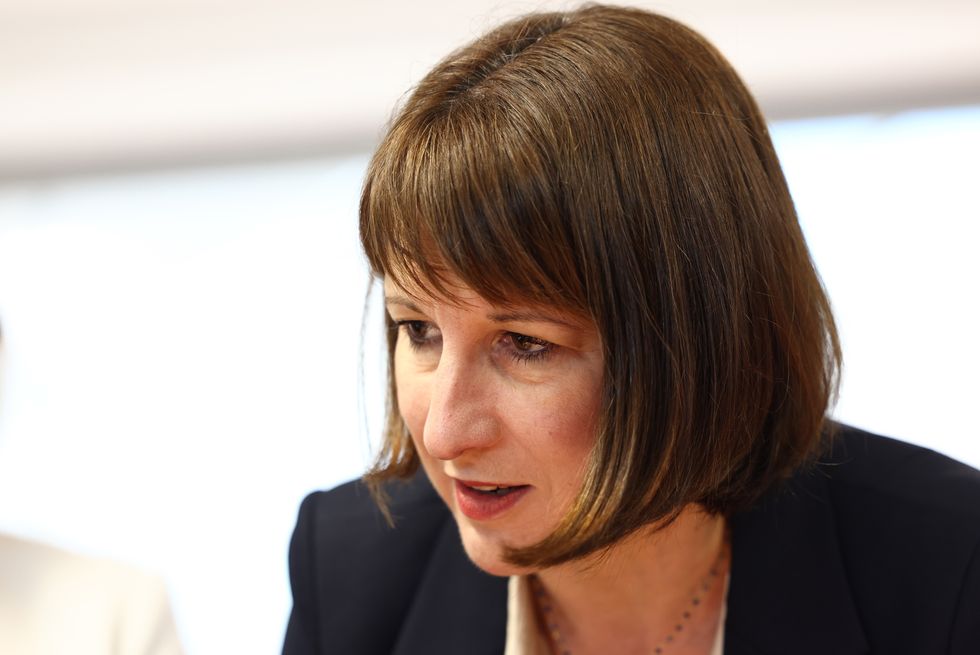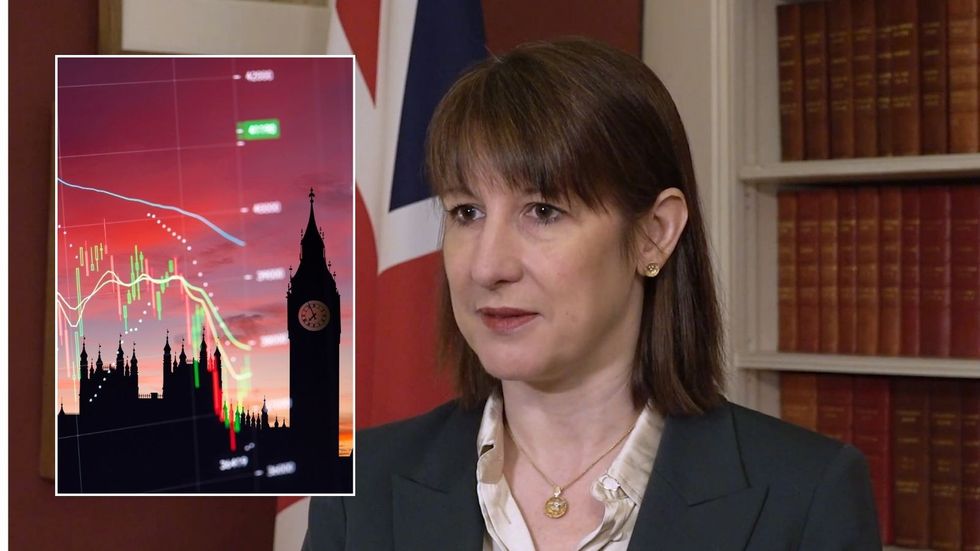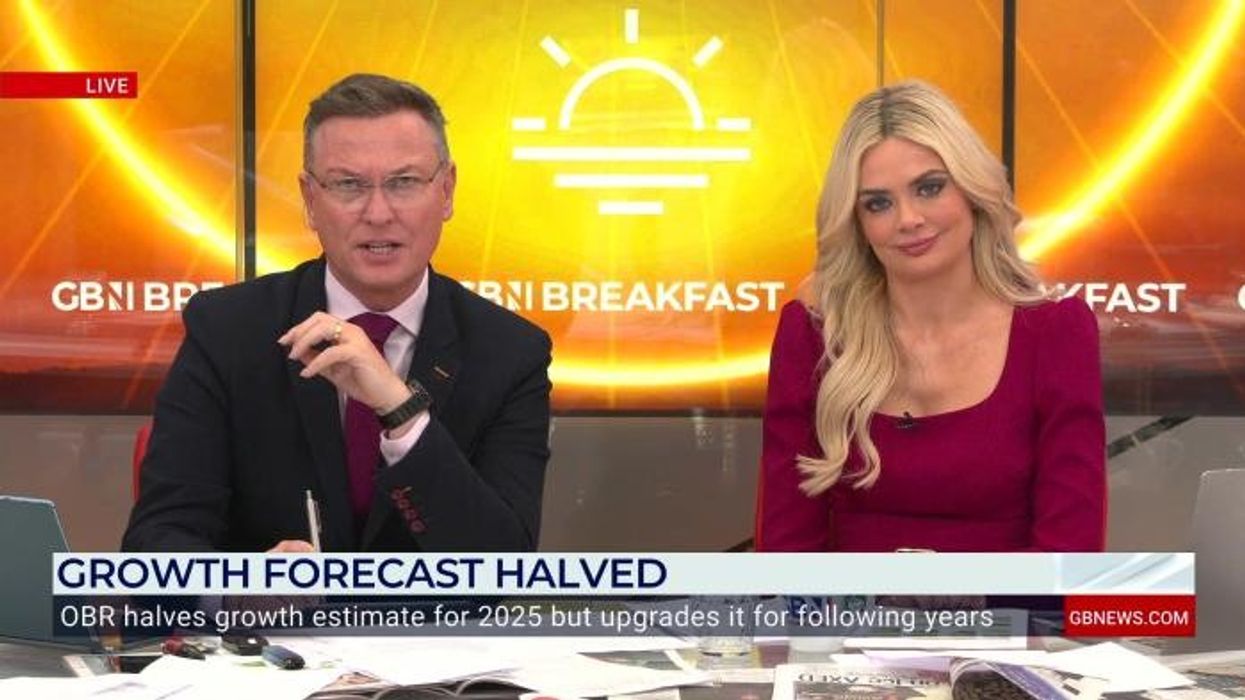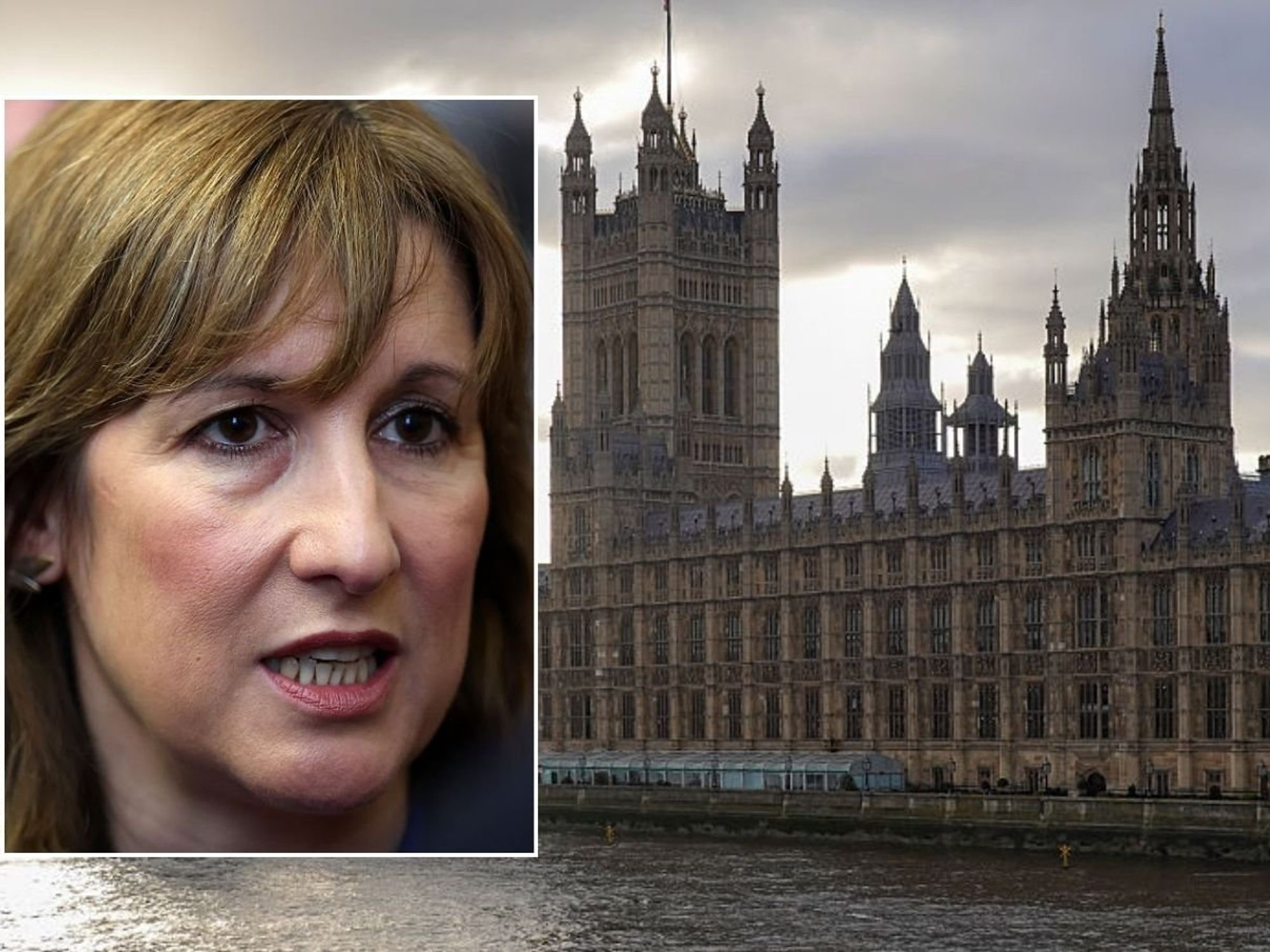Economy warning: Rachel Reeves under pressure to boost tax as UK faces 'substantial downside risks'

UK growth in 2026 is now expected to slow to just one per cent
Don't Miss
Most Read
The OECD has warned Chancellor Rachel Reeves that she risks breaching her budget rules after leaving herself "very thin" fiscal buffers.
The Paris-based organisation said the UK faces "substantial downside risks to growth" and urged the Labour Government to boost tax revenues.
The intergovernmental organisation said: "Currently, very thin fiscal buffers could be insufficient to provide adequate support without breaching the fiscal rules in the event of renewed adverse shocks."
The OECD warned that "the state of the public finances is a significant downside risk to the outlook if the fiscal rules are to be met."
The organisation called on the Government to step up efforts in bolstering its budgetary wriggle room at a time of economic uncertainty.
The OECD cut its UK growth forecasts on Tuesday, trimming the country's 2025 growth forecast to 1.3 per cent from 1.4 per cent in March.
Output will expand by just one per cent in 2026, softer than its previous 1.2 per cent prediction. The UK's economic momentum is weakening, the OECD said in its latest global outlook.
LATEST DEVELOPMENTS:

The OECD said a "balanced approach" to the public finances should combine targeted spending cuts with new tax-raising measures
| PA"Momentum is weakening, with business sentiment rapidly deteriorating," the organisation said, adding that consumer confidence remains "depressed".
Survey measures of new export orders have plummeted, given the increased tariffs facing UK exports to the US, even after the trade pact struck between the Trump administration and Sir Keir Starmer's Government.
The OECD said a "balanced approach" to the public finances should combine targeted spending cuts with new tax-raising measures.
These could include "revenue-raising measures such as re-evaluating council tax bands based on updated property values" as well as removing "distortions" in the tax system.
 Rachel Reeves is attempting to navigate weak growth economy | GETTY
Rachel Reeves is attempting to navigate weak growth economy | GETTY "In order to tackle all these problems, especially when you have very high debt already, you need to work both on the revenue side and on the expenditure side; that is why sticking to fiscal rules and being able to maintain fiscal discipline is quite important," said Álvaro Pereira, the OECD's chief economist, in an interview.
The organisation emphasised the need for comprehensive fiscal measures to address the UK's budgetary challenges.
The OECD predicted that gross Government debt would rise as a share of GDP over the coming two years, leaving it above 104 per cent in 2026 compared with 101.3 per cent in 2024.
The UK Treasury will face continuing strain from higher debt interest payments, the organisation said.
The rising debt burden comes at a time when the Government is already grappling with fiscal constraints.
The OECD's projections highlight the mounting pressure on public finances as debt servicing costs continue to weigh on the Treasury's resources.
The debt-to-GDP ratio increase reflects the challenging fiscal environment facing the Chancellor as she attempts to balance spending commitments with the need to maintain fiscal discipline within her self-imposed budget rules.
Ministers are tussling over sparse departmental budgets ahead of the Government's spending review next week. Downing Street is also fielding calls from backbench Labour MPs for planned welfare cuts to be eased.

The country faces 'substantial risks' to its economic outlook
| GETTYThe pressure on Reeves is likely to intensify in the run-up to the Autumn Budget, particularly if the Office for Budget Responsibility downgrades its growth forecasts.
Inflation will remain above target this year, running at 3.1 per cent, before subsiding to 2.3 per cent in 2026, the OECD said.
Given lacklustre growth, the Bank of England should be able to carry on reducing its main interest rate from 4.25 per cent to 3.5 per cent in the second quarter of 2026.
"The UK was the fastest-growing economy in the G7 for the first three months of this year and interest rates have been cut four times, but we know there's more to do," said Reeves.











